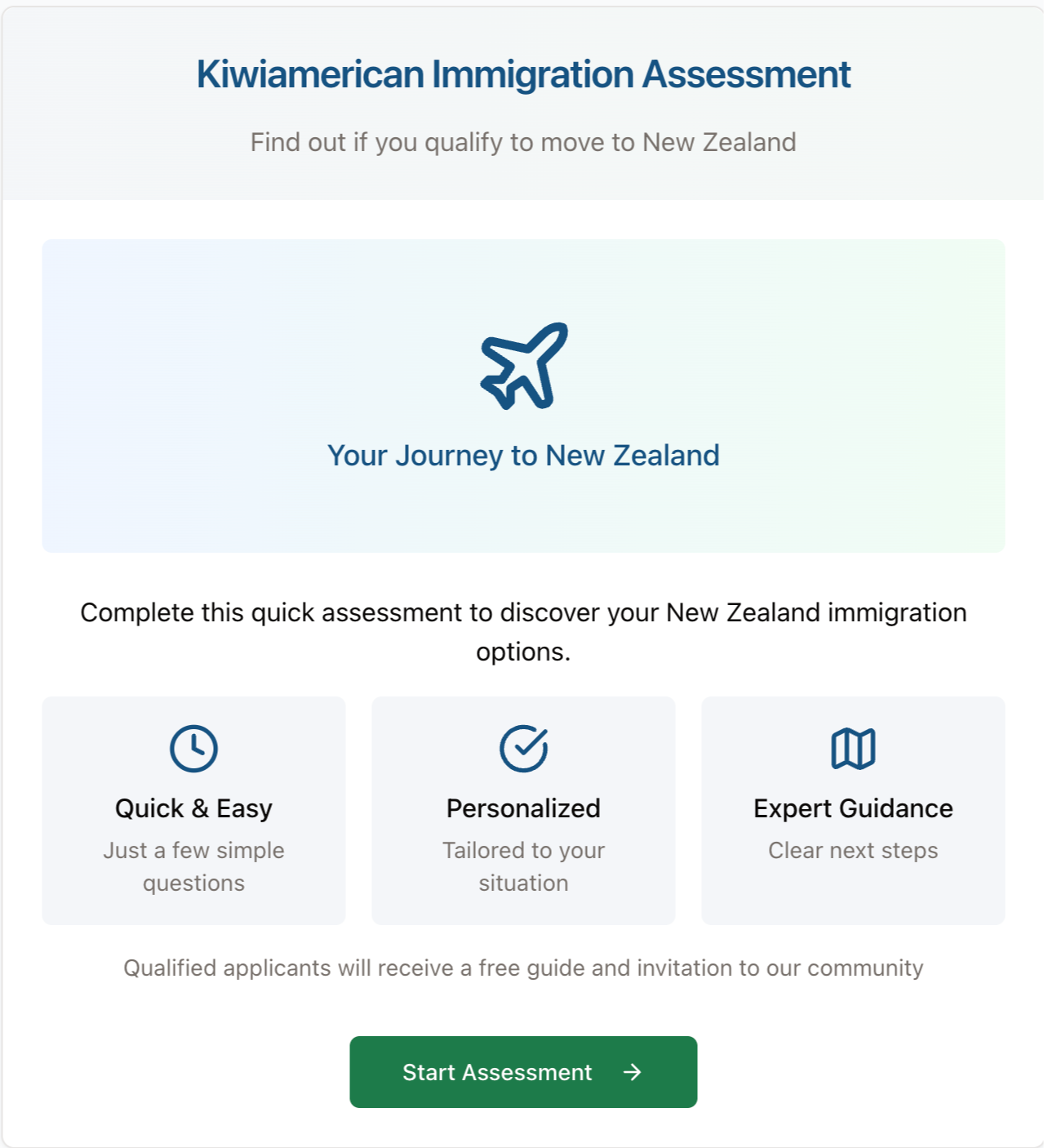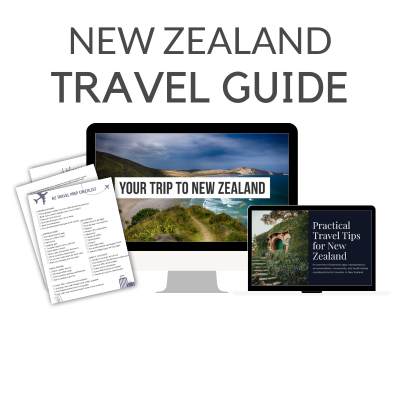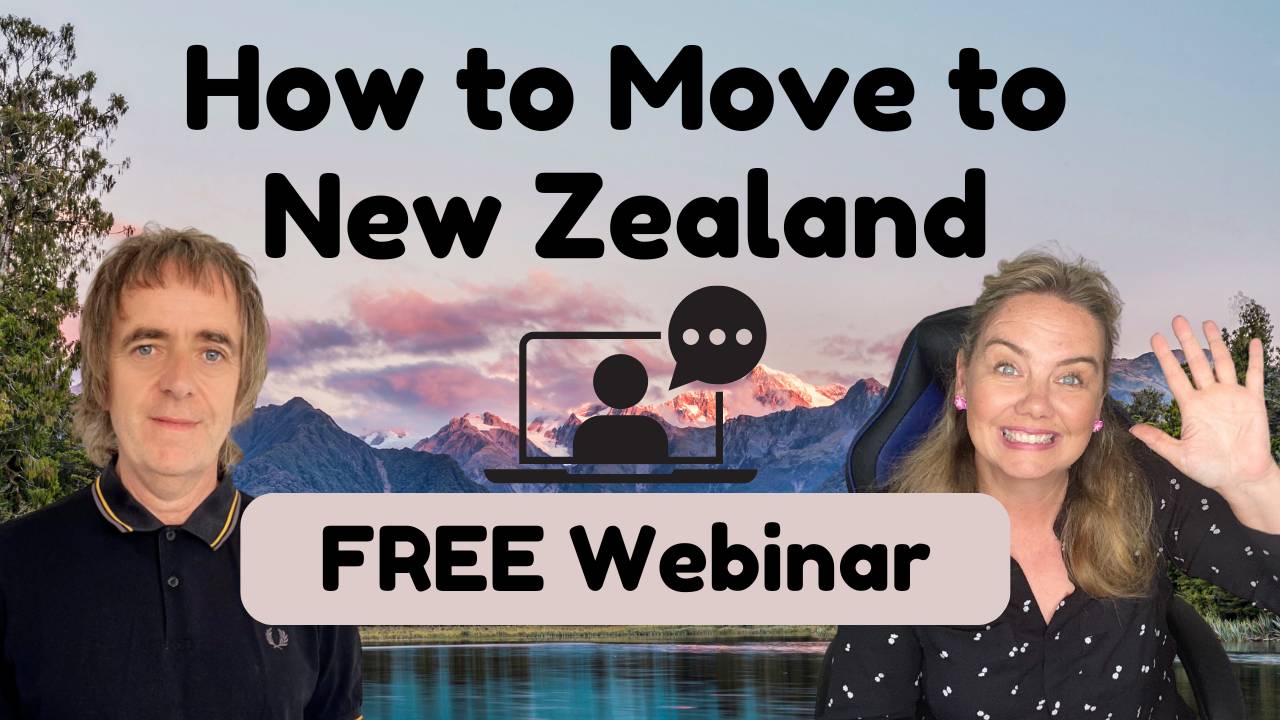Understanding the Cost of Living in New Zealand as an Expat in 2025
May 21, 2025
Have you ever imagined abandoning your current life and heading off to a land where the scenery is as varied as its citizens? Where rolling green hills meet vibrant cityscapes, and modernity intertwines with rich cultural heritage. This isn't just any place; it's New Zealand.
A little bird might have whispered in your ear about the wonders of living there. But then, somehow your Google searches that pull up the beautiful scenery and laid-back lifestyle of New Zealand seem to gloss over crucial details like costs and expenses.
Living as an expat in New Zealand can seem daunting. These are all integral pieces of the expat life you're creating for yourself, from figuring out housing costs to knowing available transportation options, navigating healthcare insurance, or grasping the monthly grocery budget.
I am Tara and I moved my family of 6 to New Zealand from the USA in 2013. I have navigated this country for 8 years and provide you with insider tips as to what it is really like! I put a video together on how much it costs my family of 6 to live in New Zealand. Check it out HERE.
If you are considering a move to New Zealand- start with my FREE Webinar to see if it's right for you!
Here, we’ll dive into how much things are in New Zealand and how much you might spend in each category. Remember one important fact: cost estimations are always relative. You might spend less if you're thrifty or more if you prefer luxuries. So, take these averages as guidelines rather than absolute truth.
Overview of Cost of Living in New Zealand as an Expat
- Average monthly expenses for a single person in New Zealand are between USD$815-$2,000 excluding rent. For a family of four, USD$2,950-$3,600 per month. This varies greatly depending on what city you live in.
- Rent in major cities like Auckland or Wellington ranging from USD$1,190-$1,450 per month for one-bedroom apartments and $2,150 to $2,650 per month for three bedrooms.
- New Zealand has a public healthcare system which is generally free or low-cost, thanks to taxation funding. However, you may still want to consider purchasing private health insurance for more immediate access and broader coverage.
- Public transport systems in New Zealand are convenient and reasonably priced. Consider looking into monthly passes if you’re using public transport often.
- Entertainment like movies (USD $13) and eating out (USD $71-90) can be a little pricier compared to the USA, so you may find yourself cooking at home more than you’re used to. But no need to worry. New Zealand offers an extensive array of beauty free of cost!
- The average net salary is NZD$60,613-$77,194 (approx USD$35,987-$46,651) per year.
- Education is reasonably priced for permanent residents and citizens but may be more pricey on a work visa, depending on they type of education you choose.
Considering a move to New Zealand? Check out my FREE 50-min masterclass 
Housing Costs in New Zealand
Housing in New Zealand can be expensive, especially in the bigger cities. Let's dive into the specifics of how housing factors into the cost of living in New Zealand as an expat.
Housing Cost Variations Across Major Cities
Auckland, Wellington, and Christchurch are three major cities where expats often settle down. But remember, location is key. Be ready to part with a sizeable amount of money monthly for rent if you're not vigilant.
Real estate market trends also play their part as they impact housing costs. For instance, buying property might initially seem like hitting the jackpot, with current low-interest rates making mortgages attractive. However, It's crucial to consider long-term fluctuations before jumping onto the homeownership bandwagon.
|
City |
One-Bedroom Apartment Rent Per Month (USD) |
Three-Bedroom Apartment Rent Per Month (USD) |
|---|---|---|
|
Auckland |
$1,040 |
$3,600–$4,800 |
|
Wellington |
$780 |
$1,560 (for two-bedroom as proxy) |
|
Christchurch |
$860–$1,000 |
$1,650–$2,400 |
But don't let this info scare you off. Remember, relocating halfway around the world is a big deal and not something to take lightly. Coming into your move prepared will help you transition smoothly.
Tara's Tips: There are creative ways to save on your biggest expense in New Zealand - housing! I have put a room in my home for rent on Airbnb or have boarders. This helps bring your housing costs considerably and it can also be a very rewarding process!

Understanding Healthcare Costs in New Zealand
If you're considering a move to New Zealand, one crucial factor is healthcare costs. The system here operates on both public and private levels.
Health Insurance Options for Expats
The country offers an excellent standard of care, but with that comes some expenses. For instance, long waiting lists are common for non-acute conditions under the public healthcare system. This makes purchasing private health insurance a smart choice if you want quicker treatment access.
In New Zealand, numerous health insurance options are available to help offset medical expenses. Companies like Cigna Global Health Insurance, offer comprehensive plans tailored specifically for expats' needs. Such policies often cover hospital visits, surgeries, routine check-ups, and prescription drugs.
This way, it lets you save money and ensures peace of mind, knowing your family’s medical expenses are covered regardless of what life throws at you. It’s always better to be safe than sorry, after all.
New Zealand also has Accident Compensation Corporation (ACC) coverage, which provides no-fault personal injury cover for everyone in the country, including work visa holders who have made their new home here from abroad. However, while ACC does provide support following accidents, it doesn’t cater for illnesses, so having a good health insurance plan remains essential.
A Closer Look at Public vs Private Health Coverage
While every resident and even temporary visitor can get treatment under the public sector funded by taxes, the coverage isn't extensive nor quick regarding non-emergency cases. That's where private insurance steps in to fill the gap.
Thus, a private health policy can serve as your safety net if you seek more than just emergency care or faster specialist access. Here's an interesting fact - did you know some employers offer private health coverage as part of their benefits package? So, don't forget to bring this up when negotiating your job terms.
Tara's Tips: I have always had health insurance in New Zealand (probably since I am American and it feels weird to NOT have insurance) and I. have found it unbelievably reasonable compared to the states and it gives you amazing options for getting access to specialists when you need.

Food and Household Items: Budgeting
Grocery shopping in New Zealand can be an adventure. The range of food items, from local produce to imported goods, is extensive. It's also important to factor in household essentials when budgeting monthly expenses.
About a third of your monthly budget will be spent on groceries, so saving money will count here.
Navigating Supermarkets and Farmers Markets
New Zealand supermarkets are comparable to those you'll find stateside, with a wide variety of products. There are budget-friendly options like Pak'nSave or more upscale markets such as Countdown or New World, where you might pay a premium for certain items.
Farmers' markets scattered across the country give another excellent option for fresh produce at competitive prices while supporting local growers.
Budget Breakdown: Food & Essential Household Items
|
Food Item |
Price (USD) |
Household Item |
Price (USD) |
|---|---|---|---|
|
Milk (1L) |
$1.68 |
Toilet Paper (24pk) |
$4.83–$6.77 |
|
Bread (500g) |
$1.81 |
Garbage Bags (20–30pk) |
$2.35–$8.60 |
|
Eggs (12) |
$6.07 |
Laundry Powder (1kg) |
$2.65–$5.13 |
|
Cheese (1kg) |
$7.66 |
Tissues (box) |
$1.17–$2.06 |
|
Chicken Fillet (1kg) |
$8.77 |
Dishwashing Liquid (500ml) |
$2.12–$2.35 |
|
Pasta (1kg) |
$2.00–$5.00 |
Hand Soap (250ml) |
$1.47–$2.59 |
|
White Rice (1kg) |
$1.74 |
Sanitary Pads (10pk) |
$2.35–$3.06 |
|
Apples (1kg) |
$2.59 |
Diapers (30pk) |
$8.26–$11.32 |
Saving Money on Groceries
The cheapest grocery store in New Zealand is PaknSave. The mid-range store is Countdown, while the higher-end supermarket is New World.
If you're savvy enough, though, there are ways to save money by buying seasonal fruits & vegetables – not only do these taste better, but their prices drop during harvest season, making them easier on your wallet, too. That’s one of the best ways to manage estimated monthly costs.
And don't forget that making meals at home instead of dining out is a big money saver. A meal in a mid-range restaurant can cost anywhere from NZD $20-$40 per person, but cooking at home significantly reduces your food budget.

Transportation Costs in New Zealand
New Zealand's transportation infrastructure is extensive and competent, offering numerous possibilities to both native inhabitants and immigrants. As an expat, I have discovered that comprehending the costs associated with various forms of transportation can significantly impact your monthly expenses.
Public Transport Systems
In major cities like Auckland, Wellington, or Christchurch, you'll find extensive public transport systems. These typically include buses, trains, and ferries that locals and visitors use widely.
The average cost for a monthly pass on Auckland's public transit system, as an example, comes out around NZD$200 (approx USD$140). From my experience, if you're going to use public transport regularly throughout the month - get yourself one of those passes. It could save you quite some cash compared to single-ride tickets.
Taxis vs Rental Cars vs Owning Your Own Vehicle
If you prefer not being tied down by bus schedules or train routes, then taxis might be more up your alley. While they offer flexibility over route planning, there is also the convenience factor – especially when laden with shopping bags. But beware: taxi fares can quickly add up, so consider them carefully before hailing one every time.
- Taxis average about USD $12.50 for a 5km ride, but this varies depending on what city you’re in.
- 1 L of gasoline is about USD $1.47-1.83, depending on where you are.
- Rental cars range from USD $17-70, depending on the amount of time and size of the car you are renting. This excludes fuel costs.
If you are moving to New Zealand long-term, a used car is a more economical choice. With a booming second-hand market in New Zealand, you'll find plenty of options that won't break your budget.
Considering a move to New Zealand? Check out my FREE 50-min masterclass

Entertainment Costs in New Zealand
New Zealand's diverse entertainment offerings can provide expats a vibrant and exciting experience. Entertainment options vary widely depending on personal preferences and lifestyle choices. But one thing's for sure: there’s always something fun going on.
A Night Out at the Movies
The cost of movie tickets depends mainly on location and time. For example, in city centres like Auckland or Wellington, you might pay around NZD$18 (approximately USD$13) per ticket during peak times.
Eating Out
Foodies will be pleased with the diverse dining experiences across New Zealand cities. If you're feeling fancy, dinner at a mid-range restaurant would cost about NZD$80-100 (USD$57-71) for two people, excluding drinks.
But if budget-friendly bites are your style, you could get a hearty meal from food trucks or local eateries starting from just NZD $10-15 per person (around USD $7-11).
Hitting Up Local Bars and Breweries
Expect to spend around NZD$8–12 (USD $6–9) for domestic beer at bars, while imported ones could increase slightly.
The Great Outdoors – Priceless Fun
New Zealand boasts some of the most stunning scenery on Earth. While there are costs associated with certain activities like bungee jumping or guided hikes, many outdoor adventures, such as exploring national parks and beaches, come free of charge.
Don't hesitate to explore New Zealand's official tourism website. It's packed with tips and info to plan your perfect trip.
Financial Considerations for Expats
Moving to New Zealand comes with a bag full of surprises, not least the financial considerations. Let's delve into the specifics.
The Big Picture: Average Salaries
New Zealand offers a lavish lifestyle, but comes with a cost.
Sending money to New Zealand with services like Wise can be straightforward. This service provides competitive exchange rates, which could help save money when transferring your hard-earned dollars across continents.
Regional Variations in Cost of Living
Living expenses in New Zealand don't have a uniform price tag across the country. You might think you've hit the jackpot if you're moving to Wellington over Auckland because housing costs are generally lower. But it's essential to bear in mind that other expenses, like food prices, transportation costs, and entertainment choices, could still have a substantial impact on your budget.
North vs. South: A Tale of Two Islands
Regarding average prices for daily essentials such as groceries or public transport fares, it's often found that life on the North Island comes with a slightly higher price tag than its southern counterpart. Comparing cities like Auckland and Wellington to more laid-back locales such as Dunedin or Invercargill on the South Island, one can see that living expenses tend to be lower.
This doesn't mean, however, that every item or service will always be cheaper down south - after all variety is indeed the spice of life.
Housing Costs – The Big Player
When we talk about differences in living expenses across regions within New Zealand, housing cost stands out as an obvious variable influencing this disparity significantly.
Auckland proudly wears its "Most Expensive City" badge thanks to sky-high real estate prices both inside and outside its trendy city centre. On another hand, those choosing Christchurch get some respite where rental prices offer more bang for their buck compared to other major urban areas despite being close enough to enjoy various lifestyle amenities right at their doorstep. (source)

Educational Expenses for Expats
So, you're thinking about packing up and moving to New Zealand. If you’re bringing kids you’ll have to consider the price of education over here. Deciding between public or private schooling will affect the cost of education in New Zealand.
Tuition Fees in Public Schools
Public schools are largely free in New Zealand. That said, "free" doesn't mean without any expenses at all. You'll need to budget for extras like uniforms and field trips. However, compared to many other countries, these costs can feel pretty light on your wallet.
The Private School Difference
If you decide private school is more your style (and if your bank account agrees), be prepared - tuition fees vary greatly depending upon the institution's reputation and level of study.
In fact, some international schools charge upwards of NZD$20k per year. Just remember, though: an investment in knowledge pays the best interest.
Higher Education Institutions
You might also be wondering about university costs - especially if your kids aren't exactly...well…kids anymore.
- New Zealand universities typically cost between NZD$6k-$10k per year for domestic students, and as of 2023, tuition for the first year is free!
- BUT wait. If you’re not a permanent resident or citizen yet, expect significantly higher prices around NZD$20K–40K per annum.
FAQs: Cost of Living in New Zealand as an Expat
How much do you need to live comfortably in New Zealand?
A single person might spend USD$815-$1,000 monthly, excluding rent. For a family of four, the budget is around USD$2,950-$3,600.
Is 70k a good salary in New Zealand?
The average net salary is NZD$47,613-$58,194 annually. So yes - earning 70k would place you above the average income bracket.
Is it cheaper to live in USA or NZ?
Costs vary widely depending on location and lifestyle but overall living costs tend to be higher in New Zealand than the USA.
How much does it cost to live in New Zealand in US dollars?
An individual could expect to spend between USD$815 and $1,000 per month without rent included. Housing can add an additional $1,190-2,650 each month.
Conclusion
Cost of living in New Zealand as an expat doesn’t have to be scary. You've got insights on housing costs, from city apartments to countryside homes. You understand healthcare options and know how important private health insurance can be.
You're equipped with knowledge about transportation systems, food budgets, and even entertainment choices across major cities. Whether it's catching a movie or dining at mid-range restaurants - you're covered!
Weighing up regional variations is now easier for you, too! From bustling North Island hubs to tranquil South Island retreats - they all hold different promises.
Remember, education expenses are just as crucial if moving with family – every detail matters when planning your Kiwi adventure.
The next chapter awaits; embrace it armed with this newfound wisdom! If you are considering a move to New Zealand- start with my FREE Webinar to see if it's right for you!

Written by Tara Hulbert (Kiwiamericans)
https://www.kiwiamericans.com
SUBSCRIBE TO LEARN MORE
I send out weekly emails to update you on all that is happening in New Zealand!
We hate SPAM. We will never sell your information, for any reason.









